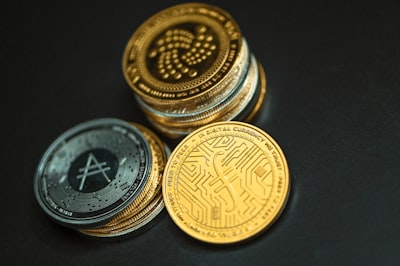Digital nomadism is dead — at least for now. It seems like a thing of the past; something people did years ago. The thought of a gallivanting programmer circling the globe, or an Instagram travel influencer sampling luxury hotels — it seems like an almost alien concept at this point. It’s hard to think that this phenomenon only peaked just a few months ago. You might have heard of people who are now making the most of the low travel costs, and enjoying the lack of people, but air travel is down by something like 90% in terms of daily passengers. If you do travel, hardly anything is going to be open and most cities have an eerie vibe. Also, you don’t know where you could get stranded, nor how the local lockdown policy applies to travelers, especially amidst the mass closure of hotels. In other words, if you do travel, rest assured that your experience is not going to be particularly glamorous.
If you travel as a digital nomad, please note that the networking that typically comes with it, is dead. The meetups are gone. After work drinks, get-togethers and social events are just not happening. Longer term, in a post-corona world, I the very appetite for travel might also remain weak, and people may not be too interested in cosmopolitan, sprawling megacities. What a lot of people are finding out now, is that being holed up in a box in a big city indefinitely, is not fun. By the looks of it, it’s going to get a lot worse still, and even when the immediate ordeal is over, people are not going to forget this any time soon. Longer term, many people may even choose to live in smaller towns, closer to nature, away from the claustrophobic beehives that are today’s busy megacities.
Speaking of busy, one thing that definitely isn’t dead, is working from home. Overnight, this became the modus operandi for virtually everyone. Necessity is the mother of invention, and sudden constraints can really force a change, and that’s exactly what’s happening here. People who are lucky enough to have a job are going to try to cling on to it and deliver value. What we’re about to see is that many business processes can totally be managed from the comforts of people’s homes. A lot of middle-managers and executives are going to find out that workers don’t need to be chained to a cubicle to deliver value. At the same time, most companies now find themselves having to conduct extremely Spartan and immediate cost cutting exercises. Working from home or not, a lot of those middle-managers are going to find these themselves out of a job very shortly (if they haven’t already joined the ten million newly unemployed Americans the past two weeks alone).
Remember though, there are entire companies that are run completely virtually; they are very lean, flat organizations with few BS jobs in them. More companies are going to be trimmed and run this way. As for the workers who do successfully convert into remote workers, I’m not convinced that they’ll want to go back into business as usual afterwards. Longer term, if and when this is over, and people are herded back into corporate captivity in an open plan office, I predict that many people will start looking elsewhere for more flexible jobs.
What about the people who work in startups? Startup funding is dead or dying. I made a bet back in 2016 with a friend (who ran a tech accelerator that shall remain nameless), as to when the startup bubble would pop. I was off by a year (and I believe I might owe someone a steak dinner). I did predict an abrupt and unceremonious end to it (like most asset bubbles pop); not because I suspected a virus, but because I did anticipate some exogenous shock to shed light on the weak financial situation (for instance the complete lack of an real earnings) you generally saw in the startup space. I used to do a lot of startup mentoring, I’ve worked with many startups and even taken a stake, and the one indicator that convinced me that we were in a bubble was this: so many of the startups were talking about their exit strategy rather than their actual business prospectus. The founders frequently made references to their exit strategies while they were pitching for angel rounds; even to the potential investors themselves. They were basically treating their businesses as a hot potato, a financial vehicle rather than as a business generating value.
You saw the same exact thing in the crypto space in 2017, people were looking for a quick flip — how do we generate enough buzz so that we can turn around and unload this on someone else? For truly successful businesses, the founders attempt to keep as much equity as possible; ideally even avoiding raising rounds, avoiding dilution and maintaining control of the future revenues at hand. Endless funding rounds and exits are the last thing on their mind. During the startup craze, raising rounds was a sign of progress.
Risk appetite will disappear, many VC’s will have to shut their doors, angel investors will not be funding speculative niche plays, and corporates will return to their core activities. There will be exceptions to this (Slack, Zoom, UpWork, and a few others that tie into either cost reduction, supporting necessary remote functions, etc), but the future for startups that tie into the typical 2020 themes will be bleak. A lot of them relied on discretionary consumer spending, frivolous entertainment and vanity, marginal conveniences, and therefore they are a thing of the past. Looking to past trendy topics such as AI & Machine Learning, Internet of Things, etc. — the interest has already begun to recede, and from an investment standpoint, the focus will begin to shift. Even the gig economy will suffer, and yes, that includes the darlings such as Uber, Lift and even the food delivery companies. With the coming changes in regulation, whereby contractors have to be treated more as employees, the cost savings with those business models vanishes overnight.
The metrics that matter to investors will once again change. During the Dotcom bubble, success was all about eyeballs, visibility, traffic. In the Nasdaq bubble of 2020, it was all about user acquisition and to a lesser degree about revenue. Maybe, in the next bubble, it’ll be about paying customers and real earnings. Not even amongst the unicorns do we talk about earnings — most of them made a loss. Remember, Uber had a -60% profit margin last quarter. Lyft had a -75% margin. Imagine if you ran a business that destroyed so much money for every dollar that came in you lost 75 cents — you’d shut it down immediately!
The rationale was always “we’re not making money but we’re gaining so much market share, and as the economy grows, in the future we’ll come out ahead”. Guess what: the future is here, and people are not about to start spending more money on rides any time soon. Those losses are going to deepen dramatically, meaning the stocks are even more overvalued. As I’ve been saying for a while, the NASDAQ has a lot more air in it.
That doesn’t necessarily mean that the unicorns will go to zero. With the current reckless monetary policy, it’s possible that stocks can be artificially elevated, but in real terms (i.e. measuring the value of the stock in anything meaningful and tangible, it’s downhill from here). This is not financial or trading advice.
One question that I’ve been getting a lot is: when do we go back to normal? We’re not going back to normal, because we were not in normal conditions. We were in a raging stock market bubble (in fact, we still are), and interest rates had never been this low for this long, corporate and consumer debt, sovereign debt had never been higher, and so on.
Meanwhile, the economic shutdown is essentially unprecedented. This is a more abrupt and dire development than 9/11 and World War II, combined. We slid into recession faster than during the Great Depression — and that took years to play out. We’re falling from a far higher elevation, from much weaker financial conditions; we have further to fall and as it stands, we’re facing a few years worth of challenge.
To try and end this on a somewhat positive note, it is a positive that we’re seeing a boom in working from home. It will liberate a lot of people from what was a fairly incarcerating work environment. Maybe we’ll look back at yesterday’s open office environments as the coal mines of yesteryear — who knows. The prospect of food shortages, will teach people a hard lesson in the importance of self-sufficiency. The lack of medical equipment and critical medications will teach governments the dangers of global supply chains. The breakdown in manufacturing the simplest things will teach businesses the danger of just in time inventory management. And so on. These are painful lessons to be learned, but they will hopefully contribute to a more sound society moving forwards.
Are you working from home? Do you love it/hate it? Are you buying stocks? Are you bullish on startups? Do you think we’ll learn any lessons from all of this? What do you want to hear more about? Let me know what you think — send me an email on podcast@nyman.media and I’ll riff on this in the next podcast. Until then, thanks for listening!
Supporters of taim.io.








